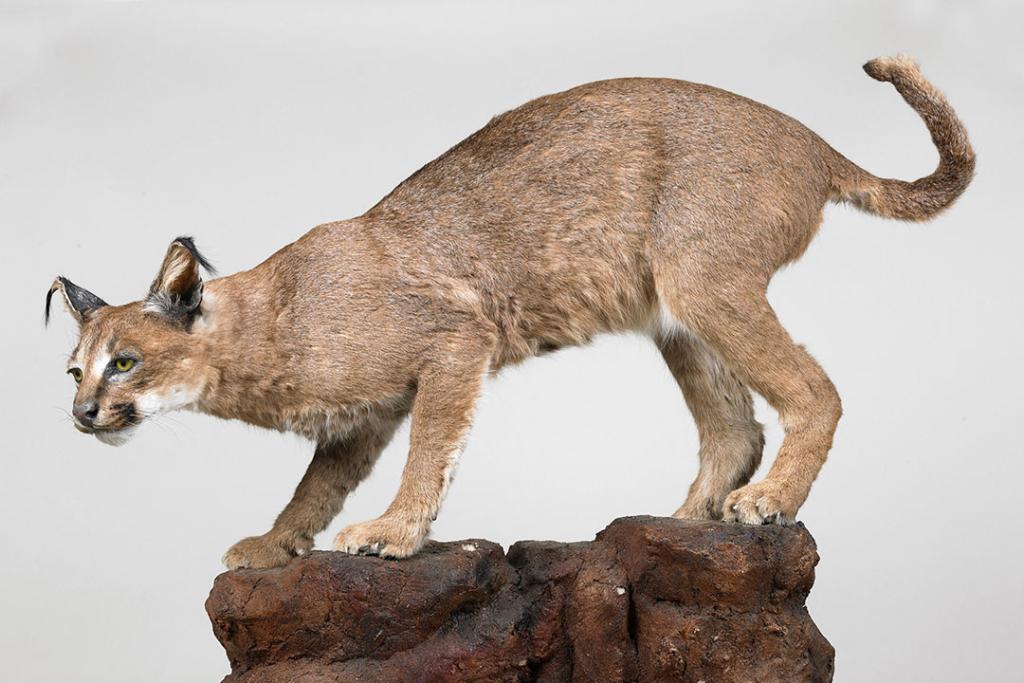
Mammal collection
The mammal collection includes study skins, mounted mammals and fluid-preserved specimens.
Part of the vertebrate zoology collection
Mammal skins
The mammal study skins total about 2,000, with Australian and African species particularly well represented. The collection includes mammal specimens which once were living in the 13th Earl of Derby’s Menagerie at Knowsley Hall. An example is the Eastern Quoll, a rare Australian marsupial which was painted at least twice at Knowsley by the “Nonsense Poet” Edward Lear. A number of the mammal specimens are types, such as the holotype of Lord Derby’s Opossum from Central America, or are rare or extinct species such as the Australian Long-tailed Hopping-mouse.
Our collection of British Mammal skins is available for exploring online at the NBNAtlas and GBIF.
Mounted mammals
The collection includes nearly 400 mounted mammals. These include a Lord Derby's Eland, named after the 13th Earl of Derby. This is the largest antelope species and our specimen is nearly two metres high at the shoulder. It is currently on display in the Museum of Liverpool. A few mounted mammals came from the 13th Earl of Derby's Aviary and Menagerie at Knowsley, including three Australian Echidnas who lived there in the 1840s. We also have a large collection of pangolins, received from the 13th Earl of Derby, the India Museum (East India Company), and the Wellcome Institute, amongst others.
The mounted collection is extensively used by other museums and galleries for exhibition, and by students in both the sciences and humanities.
Fluid-preserved mammals
The number of bats in spirit has increased from two specimens in 1975 to about 6,000; mainly due to annual donations between 1999 and 2010 from the Ministry of Agriculture, Fisheries and Food (now Department for Environment, Food & Rural Affairs) of British bats found dead or moribund, and which have been tested for rabies. The specimens represent important distributional voucher records for these animals.
